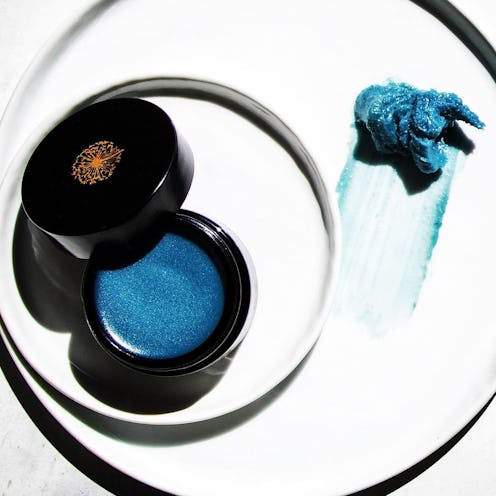(Skin Care)
Waterless Beauty Products May Just Be The Future Of The Industry
Plus, the top formulas paving the way.

Have you ever considered how much of your shampoo is hair-nurturing ingredients and how much of it is simply water? According to industry insiders, the amount that is just water is higher than you might have guessed. This isn't a revelation — in fact, it's the way it's always been, but it does have an impact — both on the concentration of active ingredients in the products you use, and of course, on the environment. As a result, formulators are taking up the task of formulating waterless beauty products, which are both densely concentrated and less harmful to the environment.
First things first, though — why is there so much water in our beauty products? Again, the answer is multifaceted. "Water is a good solvent for beauty products and also helps form emulsions. It's inexpensive and easily available," notes Jayne Jenkins co-founder of waterless beauty brand, Everist. It also makes it easier to formulate products. The more cynical way of looking at it: "In a majority of products, it's being used to water down (literally) the formula because brands are greedy," explains Tim Hollinger, co-founder of the sustainable personal care brand, Bathing Culture. "Brands have taught us not to pay attention to formulas, beyond a splashy ingredient on the label or in marketing."
As such, he says, many products are formulated with anywhere between 80% to 90% water. "Water scarcity is becoming a major problem all over the world," Hollinger says, explaining that "it's also really heavy to send around the world via mail or on trucks. The carbon cost of transporting watered down product is astronomical — not to mention the packaging waste." To counter that problem, Hollinger's brand offers refills for its bestselling Mind & Body Wash.
"Consumers have been taught over decades to buy the biggest, most beautiful packaging, and to look at that over the actual active ingredients in a product," says Dr. Conny Wittke, founder of Superzero, which makes waterless shampoo and conditioner bars. "All that comes at a big expense to our planet and our health," she says, adding that it is estimated that over three billion plastic bottles are made for just shampoo alone each year, and ultimately, less than 10% of plastic used gets recycled.
But times are changing — consumers are wising up, and know how to read ingredient labels on their own more than ever before, not to mention how much more sustainably conscious many people have become.
So, what are the benefits for the user? In addition to being easier on the planet, Hollinger notes that products formulated without water "often last longer, as they are more concentrated. The ingredients themselves are also more powerful when they have not been watered down." Water-free products can also bring about 'cleaner' formulations. Water can support bacteria growth, and so, when you formulate with water, it necessitates the use of preservatives. In formulating Everist's waterless hair formulas, Jenkins was pleased to discover that formulating without water meant they could also formulate without chemical preservatives. "Not only for the environmental benefits, but also because of the clean ingredient lists and high-performance results," Jenkins says, "concentrated, waterless formats are the future of beauty."
Discover some of the brands leading the way — and their best products — below:
We only include products that have been independently selected by TZR's editorial team. However, we may receive a portion of sales if you purchase a product through a link in this article.
Waterless Beauty Products: Skin Care
Waterless Beauty Products: Body Care
Waterless Beauty Products: Hair Care
This article was originally published on